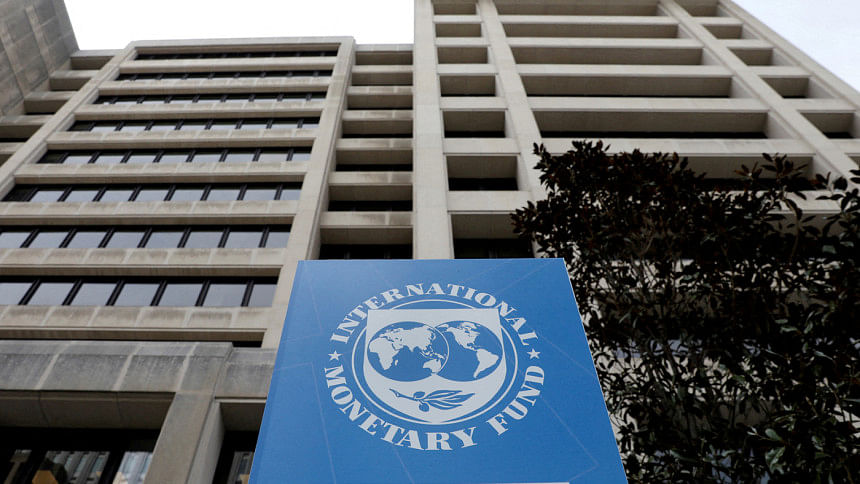IMF offers extra $1b for reforms

The International Monetary Fund (IMF) has offered an additional $1 billion to Bangladesh but the government is pushing for at least $2 billion to implement the interim government's reform agenda, narrow the deficit in the current account and shore up the dollar stockpile.
Finance Adviser Salehuddin Ahmed sought a fresh $3 billion from the Washington-based multilateral lender under the existing loan programme on the sidelines of the annual World Bank-IMF meeting in October.
Following the discussion, a 13-member IMF mission came to Bangladesh at the beginning of the month to review the country's performance and compliance with structural reform conditions for the fourth tranche of the existing loan.
The issue of extending the loan amount was discussed with the mission, which has offered about $1 billion in exchange for additional reform conditions, The Daily Star has learnt from people involved with the discussions.
But the government is holding out for at least $2 billion. In that case, $1 billion would be coming in each of the remaining four tranches under the existing loan programme.
In January last year, the multilateral lender approved a $4.7 billion loan package for Bangladesh. So far, it has disbursed $2.3 billion in three instalments.
Meanwhile, the IMF mission is set to hold talks with officials of the finance ministry and the central bank today and on December 15 to finalise various policy documents.
The policy documents are a memorandum of economic and financial policy of the government, a letter of intent, a technical memorandum of understanding and a memorandum of understanding.
While the IMF is satisfied with the interim government's various reform initiatives, it will impose specific conditions for the next loan tranches, the officials said.
This time, IMF is giving more emphasis on revenue collection, reducing the subsidy for power, energy and fertiliser sectors and banking sector governance.
In case of increasing revenue collection, the IMF wanted to know the government plans regarding tax exemption in the next fiscal budget.
Besides, the IMF may impose a condition to separate policy and administration at the National Board of Revenue and reduce the multiple VAT rates.
In the case of the central bank and banking sector, the IMF could impose various conditions for the amendments of the Bangladesh Bank Order, the Bank Company Act, and Bankruptcy.
The IMF could also give a condition for bringing down arrears in government subsidy and price adjustment.
As of June, the government's arrear was about Tk 60,000 crore. However, after taking charge, the interim government brought the amount down significantly, according to finance ministry officials.
The finance ministry is aiming to clear the arrears by half by June next year and the rest in the next fiscal year.
In case of price adjustment, the IMF has suggested raising the electricity tariffs further.
However, the interim government is unwilling to adjust the price this fiscal year because it could fuel inflation further.
The government, however, will cut expenditures of power plants in a bid to reduce subsidies, the finance ministry officials said.
A closing meeting of the IMF mission will take place on December 17 with the finance adviser.

 For all latest news, follow The Daily Star's Google News channel.
For all latest news, follow The Daily Star's Google News channel. 







Comments